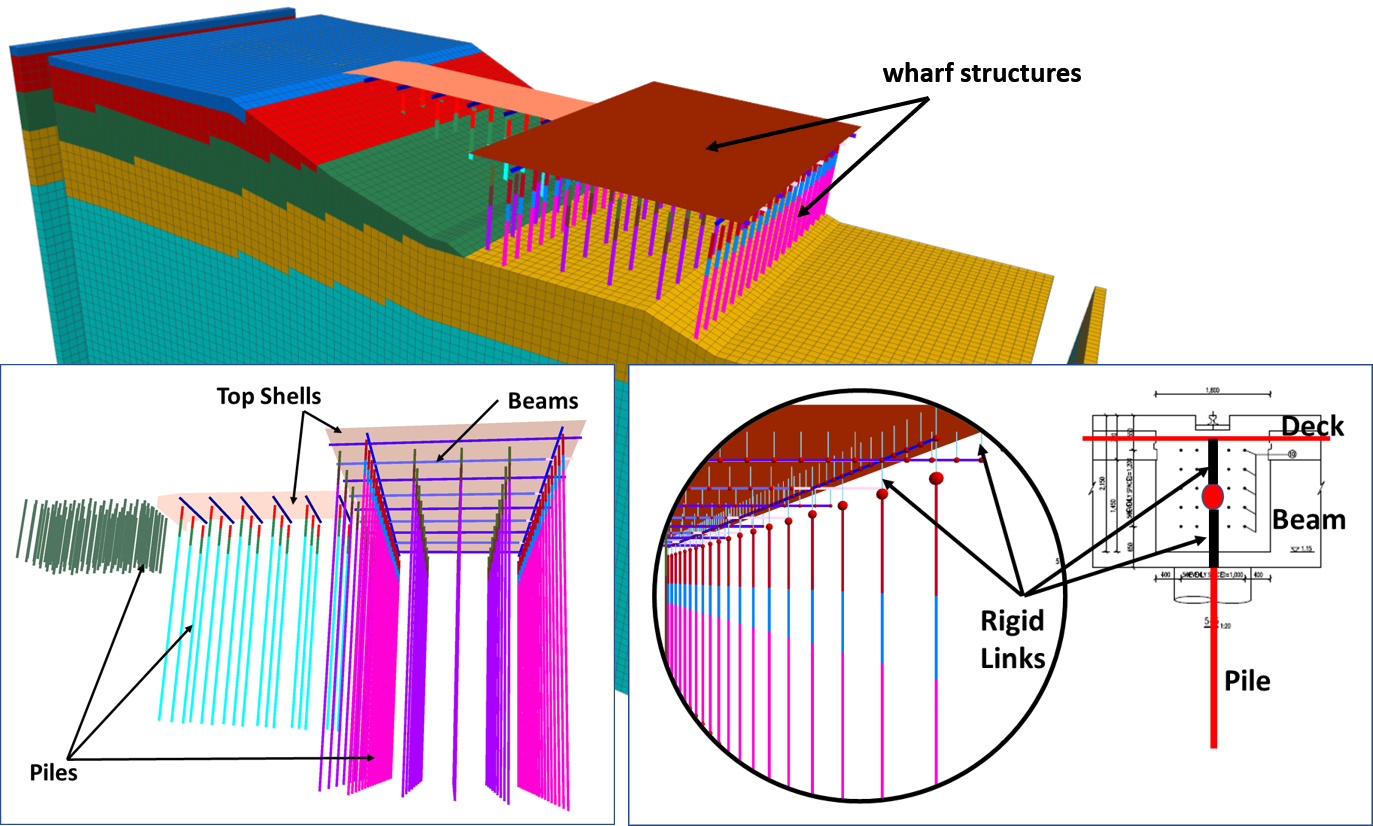Seismic Performance of the OPC Puerto Cortes Container Terminal in Honduras
Project Description
Itasca conducted a seismic performance evaluation of the trestle‐wharf section of the OPC Puerto Cortes Container Terminal, located in Honduras. A FLAC3D analysis of the soil is performed, including the piles and deck of the terminal. This is a fullycoupled, dynamic, soil‐structure, time‐history analysis that quantifies the performance and potential risks for the structure and slope. The Finn model – Byrne formulation was utilized using data from investigation boreholes.
A representative earthquake wave form was selected to reflect the site conditions. FLAC3D models were run for waveforms scaled to match two design spectra. The model results show displacement, pore‐pressure, and stress in the soil and displacement and stress resultants in the structures.
Itasca's Role
The FLAC3D model considers the full coupling between the soil and the terminal structure. Structures are represented explicitly considering nonlinear behavior for the pile‐concrete‐plug portions of the piles. The steel‐pipe portion of the piles are modeled as elastic. In this type of structure, it is usually the connection with the deck that is critical because of the bending stiffness ratio between the pile head and the beams. Some level of redistribution may occur, but in general, it is small, unless the connection at the top of the pile completely loses moment capacity, becoming a perfect hinge. The model is dynamic and considers liquefaction, including cycle dependent pore‐pressure generation, modulus reduction, and damping.
Project Results
The conclusion is that the soil can liquefy, although mostly locally. The bulk of the permanent deformations are due to stiffness degradation of the soil due to pore pressure generation during the seismic event. In general, the structural performance for this level of seismic excitation is adequate, with only a few elements that can exhibit plastic behavior at the connection with the deck located in the first three rows of piles in the trestle closest to shore. These can be relatively easily repaired in case such an event would manifest.
Project Image(s)


